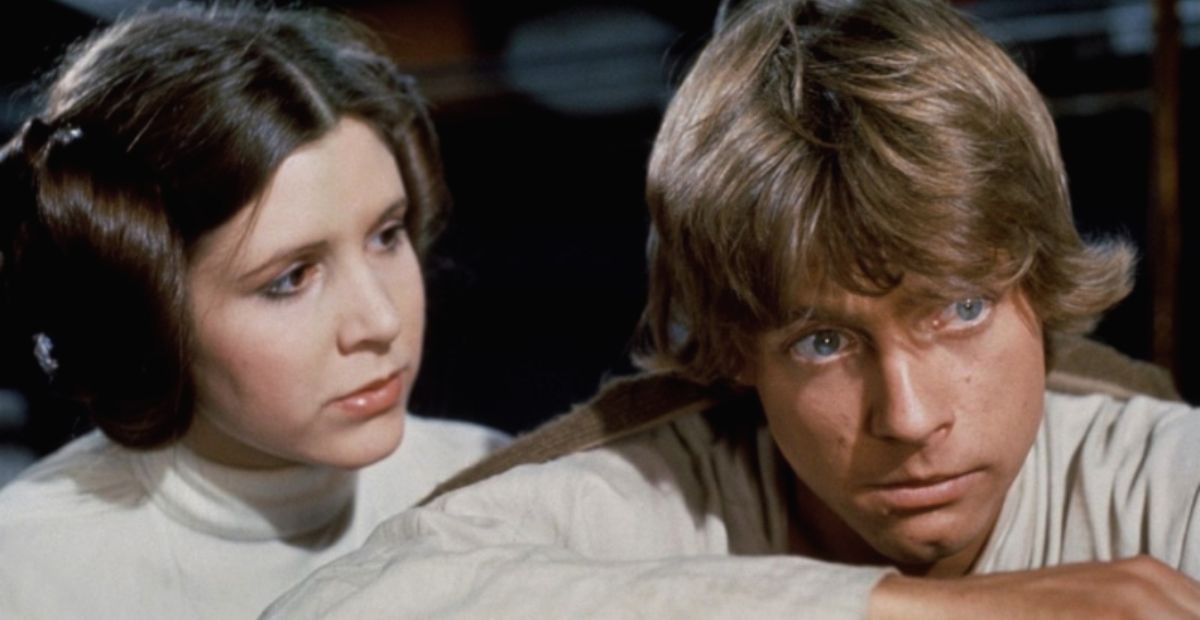Sometimes the best advice comes from the people who know you best, and in Mark Hamill’s case, that person was his on-screen sister, Carrie Fisher. In a recent interview that’s been making waves across the Star Wars community, Hamill shared a story that perfectly captures both the unique friendship he had with Fisher and the wisdom she brought to navigating life after becoming a pop culture icon.
During his appearance on NPR’s Fresh Air, where he was promoting his latest film, “The Life of Chuck,” Hamill opened up about a moment from the 1980s that completely changed how he viewed his Star Wars legacy. It’s a story that reveals as much about Fisher’s character as it does about the challenges actors face when they become forever linked to beloved characters.
The Theater Kid Who Wanted to Be More Than Luke Skywalker
After Return of the Jedi wrapped in 1983, Mark Hamill had plans that didn’t involve lightsabers or the Force. Like many actors who found sudden fame in a blockbuster franchise, he was determined to prove he was more than just one character. His solution? Broadway.
Hamill threw himself into theater work with impressive dedication. He made his Broadway debut in “The Elephant Man” in 1981, even before the original trilogy was complete. Then came “Amadeus,” followed by “Harrigan ‘n Hart” in 1985, and “The Nerd” in 1987. These weren’t small parts or vanity projects; Hamill was seriously pursuing his craft and building what he hoped would be a respected theater resume.
But here’s where it gets interesting. When you looked at his playbill biography during those Broadway runs, you’d find a detailed list of his theater credits, and then, almost as an afterthought, a single line: “He’s also known for a series of popular space movies.”
That’s right—Mark Hamill was so determined to be taken seriously as a theater actor that he couldn’t even bring himself to mention Star Wars by name. And honestly? I get it. Imagine being an actor with serious dramatic aspirations, only to have people constantly asking you to “do the Force” or quote lines about sand. It must have felt like his entire career was being overshadowed by three movies where he wore all white and waved around a glowing sword.
The Sister Who Saw Through the Act
Enter Carrie Fisher, who apparently had zero patience for Hamill’s attempt to downplay their shared legacy. When she came to see one of his Broadway shows, she noticed that conspicuous omission in the playbill—and being Carrie Fisher, she wasn’t about to let it slide.
“She goes, ‘What’s the deal? How come you don’t mention Star Wars?” Hamill recalled. His response was probably something every serious actor has felt at some point: “Well, I want to show that I have a resume that includes extensive theater credits.”
But Fisher wasn’t having any of it. Her response was classic Carrie—direct, no-nonsense, and absolutely on point: “Hey, get over yourself. You’re Luke Skywalker. I’m Princess Leia. Embrace it.”
What makes Fisher’s advice so powerful is that it came from someone who truly understood the situation. She wasn’t some outside observer telling an actor to “be grateful for what you have.” She was Princess Leia herself, someone who had faced the exact same challenges and come to a very different conclusion about how to handle them.
Hamill admits that Fisher’s words were a turning point for him: “And I kind of saw what she meant, you know, because you say to yourself, ‘What territory do I occupy that no one else does?’ So she was someone that sort of put it in perspective for me.”
Think about that question for a moment: “What territory do I occupy that no one else does?” It’s brilliant in its simplicity. Instead of seeing Luke Skywalker as a limitation, Fisher was encouraging him to see it as something unique and valuable. How many people get to be the hero of their generation’s most beloved story? How many actors get to be part of something that brings joy to millions of people across decades?
Fisher had already figured this out. Throughout her career, she never ran from Princess Leia. Instead, she owned it, talked about it with humor and intelligence, and used her platform to discuss important issues. She understood that being part of Star Wars wasn’t a burden—it was a gift that came with responsibilities and opportunities.

